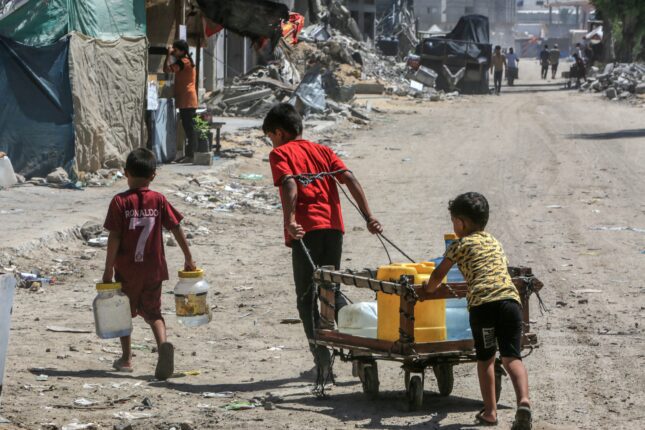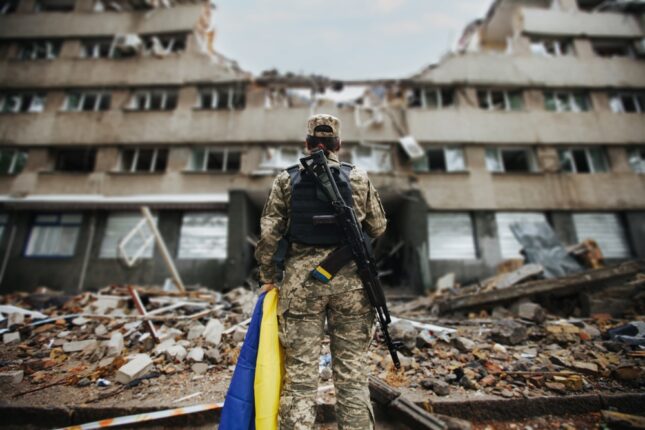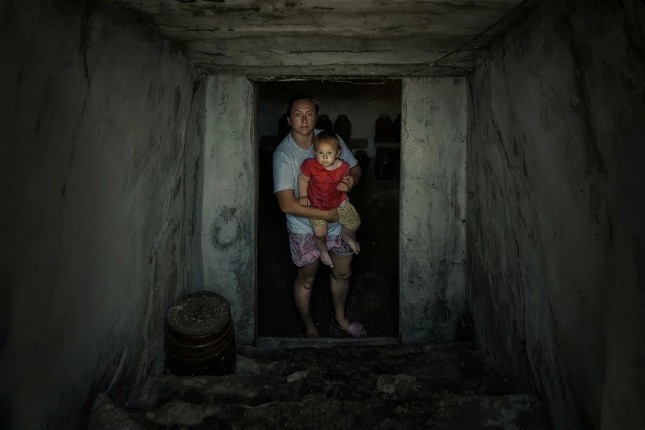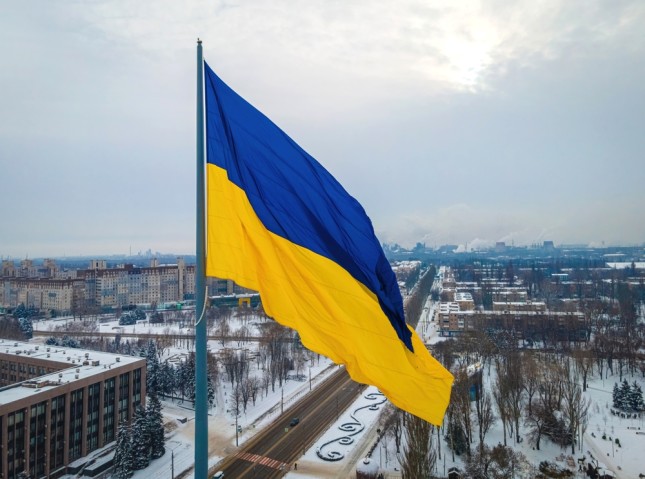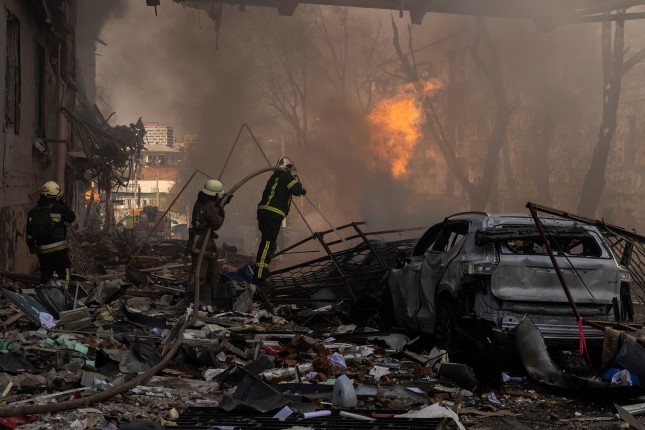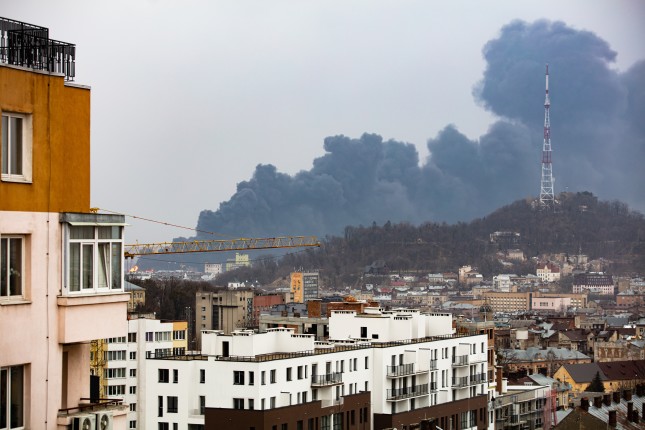-
Environmental Security Weekly Watch: November 10-14, 2025
›A window into what we’re reading at the Stimson Center’s Environmental Security Program
Rising Food Insecurity is Driving Instability (Foreign Affairs)
Since 2020, the number of people facing acute hunger and chronic food insecurity has increased 130% above existing levels. And supply is not the issue. At present, the world produces enough food to feed nearly 10 billion people, yet there are 720 million people who are food insecure and a further 319 million face acute hunger. Today’s hunger is driven instead by barriers to access.
-
War and Climate Change Intensify Global Water-related Conflicts
›
The Pacific Institute recently updated its Water Conflict Chronology—a database of water-conflict events that began to take form in the 1980s. The recent updates include the addition of 300 new entries to the database, highlighting the alarming rise of water-related conflicts in the last few years. Despite this overwhelming evidence of a growing trend in water-related conflicts, global attention toward addressing them remains negligible.
-
Women and Children in Ukraine: Q&A with Kira Rudik
›
This month marked the two-year anniversary of the Russian invasion of Ukraine. March, in the United States, is Women’s History Month and internationally, the world celebrates International Women’s Day, each year on March 8. In recognition of both the ongoing war and its effects on Ukrainian women and children, the Maternal Health Initiative reached out to Member of Parliament and Leader of the Holos Party, Kira Rudik as a follow up to conversations we had at the start of the war and at its one year anniversary.
-
Update on Russia’s Invasion of Ukraine: The View From Parliament
›
In this edition of Wilson Center NOW, Update on Russia’s Invasion of Ukraine: The View From Parliament, John Milewski, Moderator of the Wilson Center NOW series, interviews Kira Rudik, Member of Parliament of Ukraine, First Deputy Chairwoman of the Parliament Committee on Digital Transformation, Leader of the Golos Liberal Political Party, and Vice-President of the Alliance of Liberals and Democrats for Europe (ALDE). Rudik has spoken with the Wilson Center twice before, as the onset of the war and at its one-year anniversary. This NOW interview centers on updates on the war, the role of government and allies, and the continued resolve of the Ukrainian people.
-
Women and Art at a Time of War: Acknowledging Ukrainian Women
›
“War is central to history. History has been written (and painted) by men. This exhibition provides a platform for women narrators of history and also examines gendered perspectives of war,” said art curator Monika Fabijanska, referring to the exhibit “Women at War” she recently put together, which was on display at the Stanford in Washington Art Gallery from January through March 2023.
-
One Year Later: An Interview with Ukrainian Member of Parliament, Kira Rudik
›
Nearly a year ago, after Russia’s invasion of Ukraine, the Wilson Center’s Sarah B. Barnes spoke with Member of Parliament Kira Rudik about the impact of the war on Ukraine’s women and children. Barnes and Rudik spoke again a few days ago, as the first anniversary of the conflict approached. Their conversation touched on the current state of the war, including impacts on infrastructure, the ongoing refugee crisis, schooling for Ukraine’s children, and retaining Ukraine’s heritage.
-
Ukraine’s Environment in Time of Conflict: Damage, Data and the Rule of Law
›
When Russia invaded Ukraine on February 24, 2022, it was not only a geopolitical and humanitarian disaster. The conflict has detrimentally impacted the environment.
War and environmental damage are inextricably linked, but the invasion of Ukraine has caused further deterioration in pre-existing environmental issues. “Before 2014, Ukraine was already a country which faced environmental challenges,” observed Ian Anthony, Director of the Stockholm International Peace Research Initiative’s European Security Program (SIPRI) at a December 14 webinar titled Beyond War Ecologies: Green Ways forward for Ukraine. “Russia’s first aggression in 2014 exacerbated problems. The second aggression extended some of the problems to other parts of Ukraine and not just to Donbas.”
-
Warfare and Global Warming
›
The world has plenty of reasons to avoid conflict already. Yet attendees at the recently-concluded COP27 climate conference in Sharm el-Sheikh, Egypt were presented with another compelling argument: Warfare is bad for global warming. So much so, in fact, that Ukraine’s delegation to the conference organized a special session at the conference of parties on “War Related Emissions,” bringing along a tree trunk bearing scars from Russian shell fragments as tangible evidence.
Showing posts from category Ukraine.



